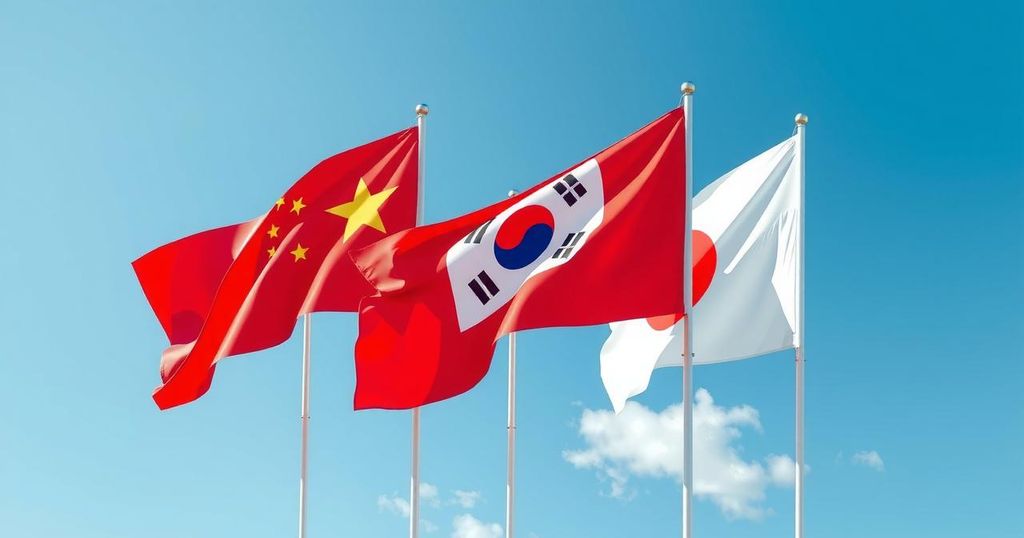Politics
ABYDOS, AFRICA, AMERICANS, ANGKOR, ASIA, BORDEAUX, CAMBODIA, CANADA, CHINA, COVID-19 PANDEMIC RECOVERY, CULTURAL HERITAGE, EGYPT, ENGLAND, EUROPE, FRANCE, GREECE, GULMARG, INDIA, INDONESIA, IRELAND, ITALY, JAMMU, JAMMU AND KASHMIR, JAPAN, JORDAN, KASHMIR, MEXICO, MIDDLE KINGDOM, MYANMAR, NAMIBIA, NETHERLANDS, NORTH AMERICA, PHILIPPINES, SCOTLAND, SPAIN, SRINAGAR, TOURISM, TRAVEL, TUSCANY, UAE, UNITED STATES, VIETNAM, VISA-FREE TRAVEL, WORLD HERITAGE SITES
Omar El-Sharif
Global Travel Trends in 2025: Cultural Engagement and Evolving Destinations
The travel landscape for 2025 showcases a surge in cultural tourism, with new UNESCO sites spurring international interest, particularly in Asia. Countries are enhancing visitor experiences through infrastructure improvements and immersive technologies. Labor Day travel trends indicate a preference for destinations like Canada, France, and Mexico, while evolving visa policies, such as the UAE-UK changes, present challenges. The focus on luxury escapes continues to rise, alongside emerging travel advisories for Canadians.
A cultural renaissance is spurring global travelers to explore new UNESCO World Heritage Sites across Asia, particularly in countries like Cambodia, India, and Vietnam. These unveilings enhance tourism while preserving precious cultural heritage, as governments invest in infrastructure and technology to create immersive visitor experiences that engage the next generation of visitors.
In the upcoming Labor Day of 2025, Americans are favoring international destinations, with Canada, Europe, and Mexico emerging as top choices. Enhanced flight connectivity, favorable currency exchange rates, and collaborative visa arrangements are significant factors influencing travel trends. Notably, France and Italy are witnessing a resurgence of slow travel, allowing visitors to enjoy curated local experiences over traditional package tours.
India has significantly improved domestic travel by introducing the Vande Bharat Express to Srinagar, which expedites travel times and generates increased tourism in Jammu and Kashmir. This improvement is fostering hospitality growth, adventure tourism, and spiritual journeys, with diverse offerings in eco-resorts and cultural tours taking center stage.
In Egyptian archaeology, a recently discovered 3,000-year-old tomb from the Abydos dynasty could transform historical understanding. The site’s rich contents are set to attract scholars and tourists and bolster Egypt as a premier historical travel destination. Limited guided access and virtual reality experiences are being planned to enhance visitor engagement.
The Caribbean is receiving accolades in TripAdvisor’s 2025 Traveler’s Choice Awards, highlighting Puerto Rico and the U.S. Virgin Islands for their stunning beaches and eco-friendly luxury developments. As the region focuses on resilience and sustainability, travelers are increasingly seeking community-driven experiences that go beyond mere sunbathing.
Recent changes in the UAE-UK travel visa policy, imposing up to a 10% increase, has caused concern among frequent travelers, prompting operators to preferentially adjust packages towards Schengen locations to maintain travel volumes. Meanwhile, Greece’s extension of its visa-free program for Turkish citizens until 2026 is stimulating Aegean tourism, fostering connections through shared cultural experiences.
France now welcomes visitors from over 93 countries without visa requirements, spurring significant increases in travel bookings across major cities. This expansion is expected to drive off-season tourism, as France’s tourism board capitalizes on the opportunity to promote cultural immersion and regional diversity.
Carnival’s relaunch of the Spirit focuses on experiential cruising, with newly upgraded amenities and diverse itineraries. Their innovative approach to onboard programs reflects the industry’s shift towards more enriching experiences in the post-pandemic era.
Highlighted destinations for luxury escapes in 2025 include Abu Dhabi and Namibia, which offer high-end accommodations paired with cultural thrill. These locales are seen as offering adventure, exclusivity, and a unique cultural resonance while catering to the growing demand for all-inclusive luxury experiences.
As stricter compliance measures are introduced for visitors to Mexico, travel agents are advising clients to navigate the new FMM tourist permit system effectively. This initiative, aimed at enhancing national security, signals a broader regulatory trend impacting North American tourism.
In light of geopolitical tensions, Canada is reallocating its marketing strategies, reducing focus on Hawaii while promoting domestic and European travel instead. The shift reflects a desire to insulate Canadian tourism from uncertainties stemming from international relations.
Canadians are being cautioned about travel to the U.S. and China amidst rising security concerns and diplomatic disputes. Travel warnings highlight the need for vigilance, especially for business travelers, as the tension may significantly influence corporate and leisure travel behaviors.
In a bid for Australian tourist dollars, Malaysia’s improved air connectivity and marketing strategies have led it to surpass Indonesia in travel search volumes. Its growing appeal lies in its diverse offerings, along with affordability in luxury travel.
The travel industry in 2025 indicates a landscape that is constantly evolving, where UNESCO sites, changing visa regimes, and emerging destinations redefine the travel experience. Professionals in this sector must remain adaptable to navigate the evolving dynamics of global tourism effectively.
In conclusion, the travel landscape for 2025 is rich with opportunities for cultural discovery and adventure as countries invest in heritage preservation and enhance tourism infrastructures. The emergence of new visa policies highlights the need for adaptability amongst travelers and professionals alike, fostering a dynamic environment for global exploration. With travel trends shifting towards immersive and sustainable experiences, it is imperative for those in the industry to remain informed and responsive to these changes. As destinations around the world redefine their appeal, the message is clear: the future of travel hinges on cultural engagement and the ability to adapt to new norms.
Original Source: www.travelandtourworld.com








Post Comment